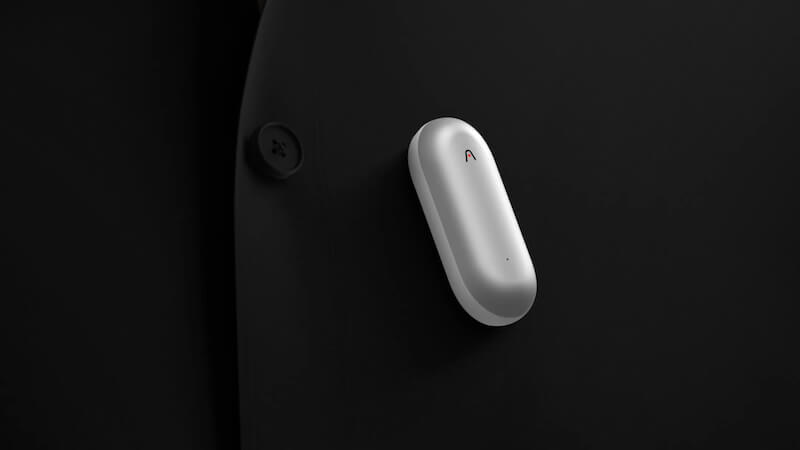
The Plaud NotePin is a portable AI audio recorder that can record and summarize conversations. It is intended to transcribe people’s entire lives and thus become a digital twin of its users.
The Plaud company recently presented the AI recorder Praise NotePin. The device is the size of a lipstick and can be worn as a necklace, bracelet or pin. The NotePin can record, transcribe and summarize conversations, which could be useful for people who often attend meetings or have a lot of conversations.
The Plaud NotePin is a further development of the original Plaud Note. This is a slim audio recorder that the user attaches to the back of the phone or carries in their pocket. Priced at $169, the NotePin offers the ability to record up to 300 minutes of audio per month. Paid software allows up to 1,200 minutes per month.
Plaud NotePin: A digital notebook
The Plaud NotePin is aimed at productivity-oriented users such as business people and salespeople who want to make their daily meetings more efficient. The focus is on simple and quick logging. Although the Plaud NotePin can be useful, there are also criticisms.
AI-supported speech recognition can be prone to errors, especially with accents or difficult names. There are also security concerns as the device itself is not encrypted and recordings could fall into the wrong hands if the device is lost.
Plaud wants to record all everyday conversations
Nevertheless, Plaud has ambitious plans for the future. In the long term, the company wants to develop technologies that make it possible to record all conversations in everyday life. This will then create a kind of digital twin of the user.
However, this raises ethical questions. Especially in terms of privacy and impact on human development. The Plaud NotePin provides a new way to integrate AI into everyday life. However, buyers should be aware of the potential risks and challenges.
Also interesting:
- Self-healing power grid: Artificial intelligence should prevent blackouts
- AI gap: Artificial intelligence is creating an even deeper “digital divide”
- AI as a judge: The advantages and disadvantages of artificial intelligence in the judiciary
- CT scans: Artificial intelligence could save thousands of lives
The article Digital twin: AI recorder should transcribe entire human lives by Felix Baumann appeared first on BASIC thinking. Follow us too Facebook, Twitter and Instagram.
As a Tech Industry expert, I believe that the concept of digital twin technology has immense potential in various fields, including healthcare, manufacturing, and even personal life management. The idea of creating a digital replica of a physical entity or system, such as a human being, can provide valuable insights and opportunities for optimization and improvement.
However, the idea of using AI to transcribe entire human lives raises significant ethical and privacy concerns. While the technology could potentially offer benefits in terms of memory preservation, learning, and self-improvement, it also raises questions about consent, data security, and the potential for misuse or abuse of personal information.
It is crucial for developers and policymakers to carefully consider these ethical implications and establish clear guidelines and regulations to ensure the responsible and ethical use of digital twin technology in recording human lives. Transparency, consent, data protection, and accountability must be prioritized to safeguard individuals’ privacy and autonomy.
Overall, while the idea of AI transcribing entire human lives through digital twin technology is intriguing, it must be approached with caution and a strong emphasis on ethical considerations to ensure that it is used in a way that respects and protects individuals’ rights and dignity.
Credits